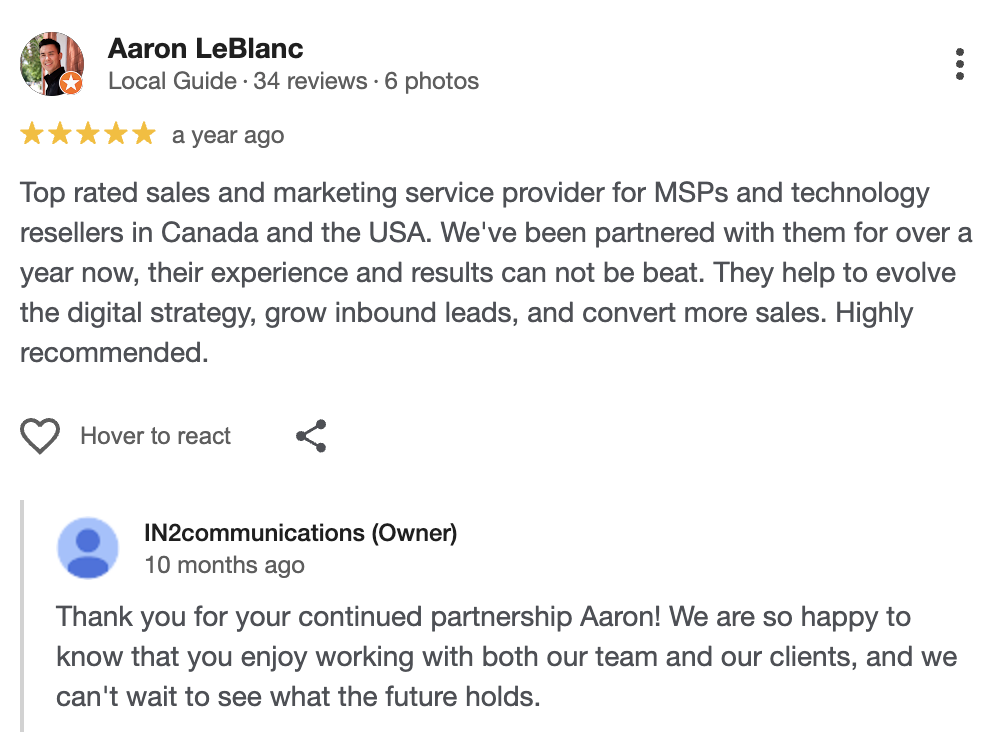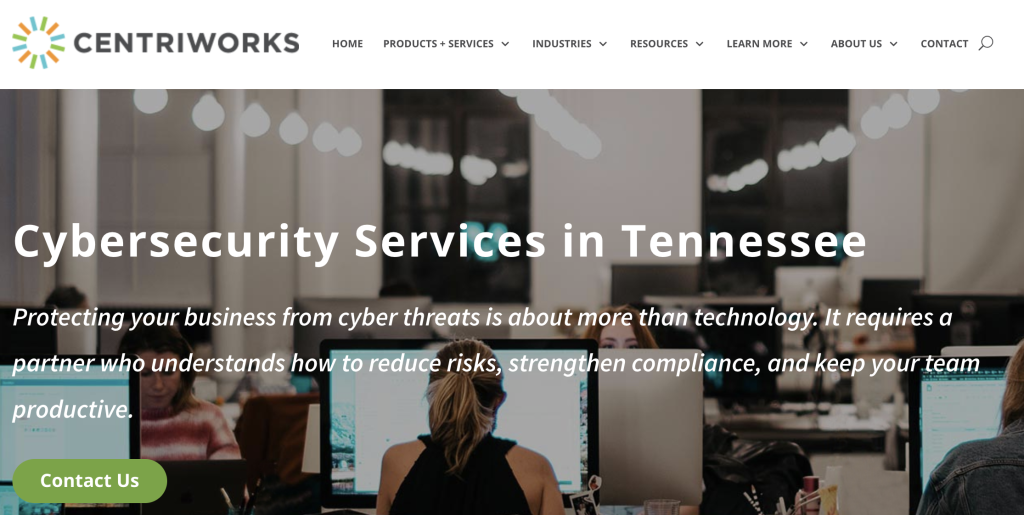When potential customers look for services or solutions, they often start their journey online. If you’re a business that depends on clients in your region, showing up in local search results isn’t just a nice bonus; it’s essential. Local SEO makes sure your company appears when someone nearby is searching for the services you provide, and it can be the difference between being discovered and overlooked. For B2B companies especially, ranking well for local searches builds credibility, attracts qualified leads, and shortens the sales cycle.
In this article, we’ll explore why local SEO is so important and share proven strategies that can help your business rise to the top of search results in your community.
Why Local SEO Matters for B2B Companies
Local search isn’t just about restaurants, retail stores, or service providers like plumbers. B2B companies also rely heavily on building connections within a certain geographic region. Whether you’re offering IT services, commercial construction, or professional consulting, your buyers often want a partner who understands their local market and can provide ongoing support in person when needed.
If your competitors are showing up on the first page of Google and you’re not, you’re missing out on valuable opportunities. Ranking for local searches allows you to:
- Increase visibility with potential clients who are actively searching for what you offer
- Establish credibility as a trusted provider in your area
- Drive traffic from decision-makers who are more likely to convert into long-term partnerships
- Support referral marketing by making it easy for existing customers to share your business with others
Ignoring local SEO essentially leaves the door wide open for competitors. But with the right approach, you can stand out as the obvious choice in your market.
Optimize Your Google Business Profile
Your Google Business Profile is the foundation of local SEO. It’s often the first thing people see when they search for your company name or services in your area. Having a complete and well-optimized profile ensures you show up in Google Maps and the local pack, the obvious section that displays a handful of businesses relevant to a search.
Make sure your profile includes accurate and consistent information: your business name, address, phone number, website, and hours of operation. Add a detailed business description that highlights your services and local expertise. Upload high-quality images of your team, office, and any client-facing work. These visuals help build trust and give potential customers a sense of who they’ll be working with.
Encourage Positive Google Reviews
Reviews play a powerful role in how both customers and search engines view your business. Google takes into account the quality and quantity of reviews when deciding which companies to feature in local search results.
Encouraging satisfied clients to leave feedback on your Google profile can significantly improve your rankings. Even more importantly, reviews influence buyer trust. A potential client deciding between two companies is more likely to choose the one with dozens of glowing testimonials over a competitor with none. Make it easy for customers to leave reviews by sending them direct links after a successful project or including a gentle reminder in follow-up emails. Respond to every review, whether positive or negative. A thoughtful reply shows that you value client feedback and are committed to delivering excellent service.
 Build Location-Specific Landing Pages
Build Location-Specific Landing Pages
If you serve multiple cities or regions, location-specific landing pages are an effective way to capture traffic for each area. These pages should be more than just a copy-and-paste version of your main website with a different city name. They need to provide valuable content tailored to each location.
For example, if your MSP supports businesses in both New York City and New Jersey, create unique landing pages that highlight your work in those communities. Feature local case studies, reference recognizable landmarks, and explain how your services support businesses in that specific area. This not only helps with rankings but also builds a stronger connection with potential clients who see that you understand their market.
Optimize On-Page SEO with Local Keywords
Using the right keywords is critical to ranking well in local search results. Conduct keyword research to identify terms that include your target locations. Instead of only optimizing for “IT services,” focus on “IT services in [city].”
Incorporate these keywords naturally into your page titles, meta descriptions, headers, and body copy. Don’t overdo it, Google rewards content that is written for people, not just search engines. The goal is to clearly communicate what you do and where you do it. Including location-specific terms in your website’s URL structure can also help. For example, a page titled /services/managed-it-new-york-city sends a clear signal about the relevance of your content.
Create Locally Relevant Content
Content marketing is one of the most effective ways to improve your visibility, and when you tie it to your local community, the impact multiplies. Write blog posts, guides, or case studies that speak directly to the challenges businesses in your area face.
For instance, if you provide IT services, you could create content around compliance regulations that impact companies in your region. Or if you’re in marketing, highlight local events or business trends that influence how your clients operate. This type of content positions you as an expert in both your field and your community, making you more appealing to local businesses searching for a trusted partner.
Strengthen Your Local Link Building Strategy
Links are still a major ranking factor, and earning links from local websites can give your SEO a strong boost. Reach out to local business associations, chambers of commerce, or industry directories to have your company listed. Sponsor community events or collaborate with nearby businesses, and request links back to your website in return.
Local media outlets and blogs are another excellent opportunity. If your company is doing something newsworthy, like hosting a charity drive or participating in an industry event, pitch the story to local journalists. A link from a reputable regional publication adds credibility and authority to your site.
Ensure NAP Consistency Across All Listings
One of the most overlooked aspects of local SEO is NAP consistency: your business’s Name, Address, and Phone number. Search engines use this information to determine whether your company is legitimate. Inconsistent information across directories can confuse both Google and potential customers. Audit your online presence to ensure your NAP is identical everywhere it appears, from your website and social profiles to directories like Yelp and Yellow Pages. Even small discrepancies, such as spelling out “Street” in one place and abbreviating it to “St.” in another, can create issues.
Optimize for Mobile Search
A large percentage of local searches happen on mobile devices. If your website isn’t mobile-friendly, you risk losing valuable leads who won’t bother with a site that’s difficult to navigate on a phone. Make sure your website loads quickly, has a responsive design, and includes easy-to-tap buttons and links. Consider the customer journey from a mobile perspective, and can a potential client quickly find your phone number, address, or directions? Prioritizing mobile usability improves both user experience and search rankings.
 Use Structured Data Markup
Use Structured Data Markup
Structured data, also known as schema markup, helps search engines better understand your business information. By adding schema to your website, you can highlight key details like your address, phone number, business hours, and customer reviews. This increases your chances of appearing in rich snippets and the local pack, which makes your business stand out in search results. Schema markup can be technical, but it’s worth the effort to implement. Many website platforms and plugins now make it easier to add without needing advanced coding knowledge.
Track and Measure Your Results
Like any marketing effort, local SEO requires ongoing monitoring and adjustments. Use tools like Google Analytics and Google Search Console to track your traffic, keyword rankings, and conversions. Pay attention to how people are finding you. Are they discovering your business through Google Maps? Are your location-based landing pages bringing in leads? Analyzing this data allows you to fine-tune your strategy and continue improving your results.
Bringing It All Together
Ranking for local searches is about more than ticking boxes on a checklist. It’s about building a strong online presence that reflects your company’s credibility, expertise, and connection to the community you serve. By optimizing your Google Business Profile, encouraging reviews, creating location-specific content, and maintaining consistency across all platforms, you put yourself in the best position to attract qualified leads right in your own backyard.
For B2B companies, the payoff of local SEO is especially significant. When potential clients search for a partner they can trust, being visible at the top of the results builds confidence and drives conversations. And with ongoing effort, local SEO doesn’t just help you get found, it helps you become the go-to choice in your market.
About IN2communications
IN2communications is a Managed Marketing Agency specializing in full-funnel marketing strategies, including website development, content creation, lead generation, and ROI analytics.




